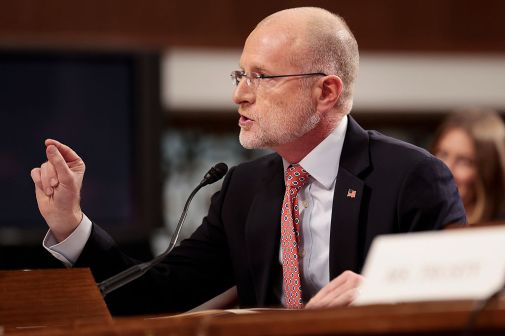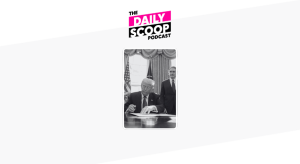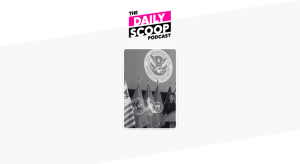Lawmakers butt heads over who should write net neutrality rules
Editor’s Note: This story has been updated to include reporting from the Wednesday afternoon Senate hearing.
What was abundantly clear on Capitol Hill Wednesday is that everyone with a stake in the fight over net neutrality — telecom companies, the Federal Communications Commission, Internet startups and lawmakers from both sides of aisle — wants a free and open Internet.
What’s up for debate is who should be responsible for crafting the rules that govern the Internet.
During a House Energy & Commerce subcommittee hearing in the morning and later in a Senate Commerce Committee hearing in the afternoon, a line in the sand was drawn about who does and doesn’t believe the FCC should have the authority to craft open Internet rules and regulations. For the most part, Democratic lawmakers and e-commerce companies want to see the FCC craft its forthcoming rules, while Republicans and associations that represent telecom companies would like to see Congress draft its own rules.
Rep. Greg Walden, R-Ore., the chairman of the E&C’s Subcommittee on Communications and Technology, said the FCC’s regulations — which are rumored to heavily lean on Title II of the Communications Act — are relying on “aging and inept rules” that were set to originally regulate “19th century railroads and monopoly telephone companies.”
“Unelected officials are creating a regulatory scheme that will be in courtrooms for decades,” Walden said, adding that the FCC’s rules provide “a solution to the loop of litigation.” The commission creates “the policy it wants and fits the authority it has.”
In response to the rumors the FCC is going to rely on both Title II and Section 706 of the Telecommunications Act, House and Senate Republicans released a bill last week that would block or prevent Internet providers from paid prioritization, classify broadband as an “information service” (as opposed to a “telecommunications service”) and forbid the FCC from using Section 706 to regulate telecommunications service.
“Congress reads to reassure its responsibility to make policy and let the FCC do what it was does bet: enforce clear statutory rules,” said Sen. John Thune, R-S.D., chairman of the Senate Commerce Committee, during the hearing. “The entire Internet needs this kind of certainty and only Congress can decide it.”
A number of Democratic House subcommittee members said while they believe the bill is a step forward, it does not represent consumers’ interest and would take the strength out of any regulatory muscle the FCC currently has.
“I think this would be a march to folly,” said California Rep. Anna Eshoo, the senior Democrat on the communications and tech subcommittee. “We should protect consumers, advance startups, and when we do, our constituents should be 100 percent confident that things will be carried about, that there will be a cop on the beat.”
“I don’t want to undermine the FCC’s authority and certainly don’t think that will serve to protect consumers,” said Rep. Frank Pallone, D-N.J. The FCC “must remain the vigilant cop on the beat.”
Sen. Bill Nelson, D-Fla., the Senate Commerce Committee’s ranking member, said later in the day he wants to refrain from “putting the FCC in a straight jacket.”
“The congressional prerogative to act does not cease merely because an agency has more forward and done its job,” Nelson said.
Two witnesses at the House hearing — CTIA President Meredith Attwell Baker and National Cable and Telecommunications Association president Michael Powell — do not feel that the FCC would be a worthwhile cop, claiming that the FCC’s rules will have an adverse effect on telecom companies. At one point, Attwell Baker threatened a lawsuit against the FCC if the commission lumps wireless broadband into regulations crafted for wireline broadband.
“If the commission proceeds with title II, as opposed to Section 706 path, the wireless industry will have no choice but to look to the courts,” Attwell Baker said in her opening statement at both House and Senate hearings. “Given the language of Section 332, we think we would prevail.”
Paul Misener, the vice president of public policy for Amazon.com, told the House subcommittee that regardless of where the regulations come from, any rules that ultimately change the way people use the Internet will be poorly received by consumers.
“We take our position from our customers,” Misener said. “Consumers want the fundamental openness of the Internet and the choice it provides. If net neutrality is taken, they won’t care where or how, just that it is taken.”
Even as the FCC plans to reveal its new rules on Feb. 26, Rep. Bobby Rush, D-Ill., said House Democrats will have their own net neutrality bill coming within the next month.
Regardless of what side of the aisle legislation comes from, open Internet advocates said Wednesday they would rather let the FCC enforce its own regulations.
“It’s very important that whatever you do not interfere with the rules the agency can appropriately promulgate and legislate in a matter that causes more harm than good,” Gene Kimmelman, president and CEO of Internet user advocacy group Public Knowledge, told Senate lawmakers. “It’s also important to make sure that we’re preparing for the next generation of offerings for consumers. It’s extremely dangerous for Congress to step in and micromanage what is left to an expert agency.”
New America’s Open Technology Institute weighed in as well, saying the bill “significantly restricts” the FCC’s legal authority.
“Competition and openness are not partisan values — they are American values,” Alan Davidson, director of New America’s OTI, said in an emailed statement “It is encouraging to see leaders on both sides of the aisle embracing a free and open Internet. However, nothing in the bill released by Chairmen Thune and [Rep. Fred] Upton should deter the FCC from acting as soon as possible to protect American Internet users.”






